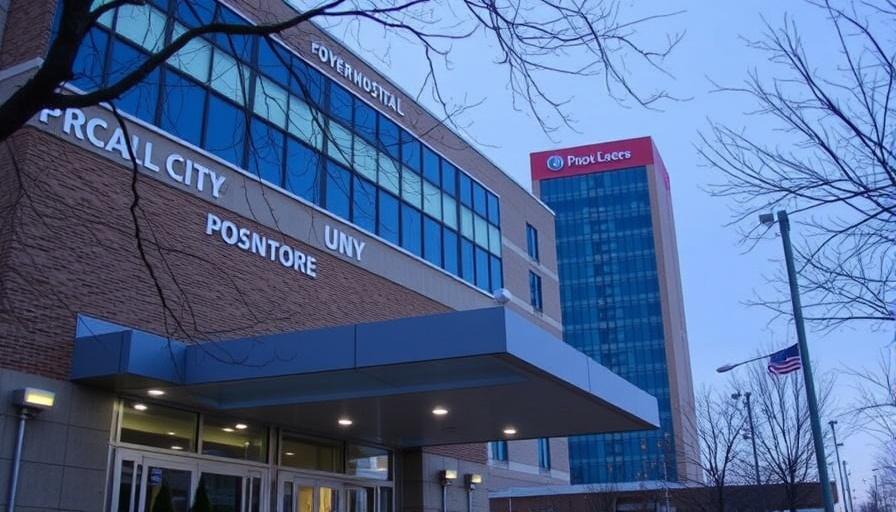
The Financial Struggles of Heights University Hospital
Jersey City's Heights University Hospital, previously known as Christ Hospital, is on the verge of suspending nonessential services due to overwhelming financial distress. CEO Nizar Kifaieh has warned that without substantial financial support from the state, the hospital could close its doors to vital services within the next 30 days. After a meticulous review, the leadership determined that anticipated losses of over $60 million annually are simply unsustainable, despite substantial investments exceeding $300 million from Hudson Regional Health, which acquired CarePoint Health earlier this year.
Community Concerns and Union Response
The potential service suspension has sparked concerns among the local community and healthcare professionals alike. Union leaders have voiced their frustrations, indicating a breach of trust, as Hudson Regional Health previously assured them of the hospital's stability post-acquisition. The Health Professionals and Allied Employees (HPAE) union has critiqued the lack of transparency and communication from hospital administrators, raising alarms over potential layoffs and service reductions that could devastate healthcare access in Hudson County. Union President Debbie White emphasized that the community deserves clarity regarding the future of their healthcare services amidst these developments.
The Bigger Picture: Healthcare in New Jersey
This situation reflects broader issues within New Jersey’s healthcare system, where hospitals are grappling with increasing financial challenges. The case of Heights University Hospital isn’t isolated; across the state, healthcare facilities are operating under tight margins, struggling to provide essential services to their communities. The implications of these financial struggles extend beyond one hospital, housing larger questions about healthcare accessibility and quality for residents of New Jersey.
What’s Next for Heights University Hospital?
As donor discussions unfold, the local healthcare landscape hangs in the balance. Hospital leadership continues to call upon the Department of Health to foster solutions that go beyond immediate financial assistance. They are poised to collaborate closely with state officials, emphasizing the need for a sustainable plan that can ultimately ensure the viability of healthcare services for the Jersey City populace. Stakeholders are left hopeful yet anxious, awaiting the Department’s next move in a critical period for healthcare in the region.
 Add Row
Add Row  Add
Add 




Write A Comment